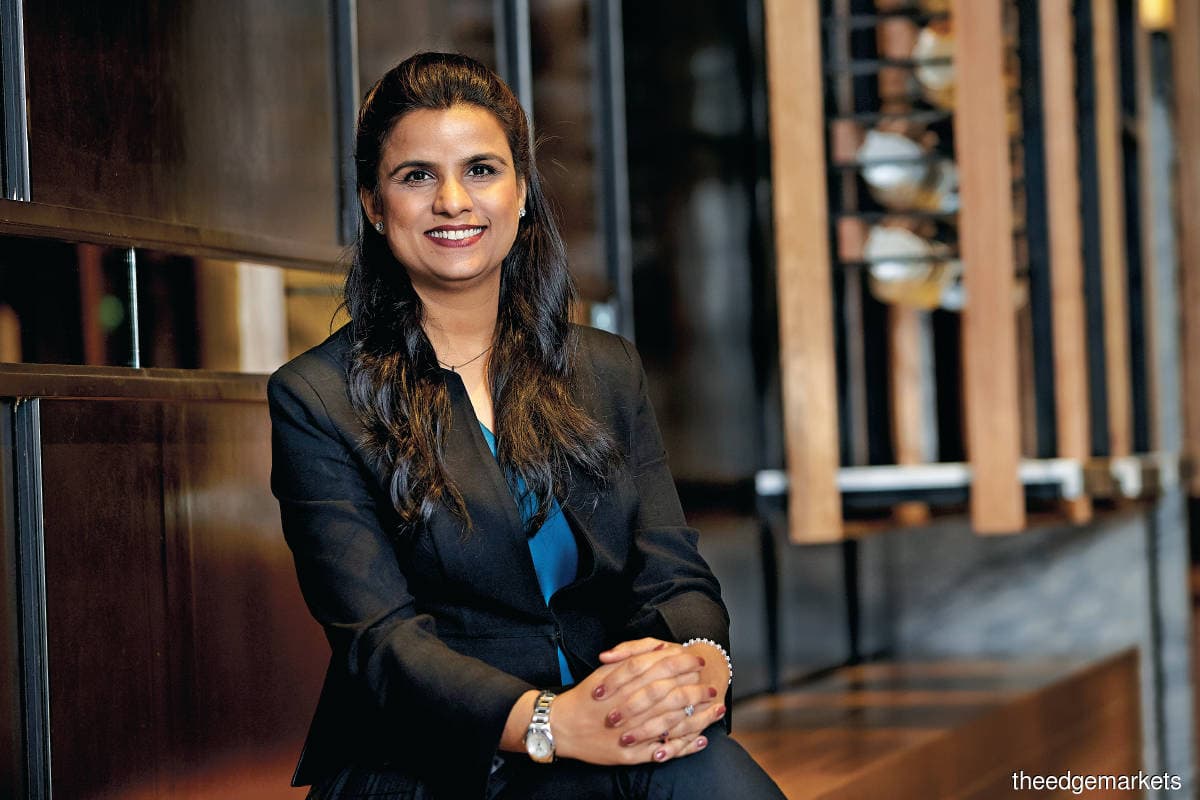
This article first appeared in Digital Edge, The Edge Malaysia Weekly on September 12, 2022 - September 18, 2022
Malaysia’s technology workforce has been steadily growing, and the pandemic has only served to accelerate the need for skilled talent in the tech sector. The 2021 Digital Talent Survey by the Malaysian Digital Economy Corporation (MDEC) showed that companies are driving the adoption of digital technologies and are accordingly focused on reskilling and upskilling employees in digital technologies and applications.
According to the survey, 48% of companies in Malaysia adopted digital tech platforms for day-to-day operations in 2021 compared with 19% in 2020, while 85% recognise the need to reskill their employees.
5G has also been recognised as an economic driver, says Priyanka Anand, vice president and head of human resources (South East Asia, Oceania and India) at Ericsson, as national initiatives such as Jalinan Digital Negara (Jendela) and the MyDIGITAL blueprint have been put in place to prepare the country for the digital economy.
To further reinforce this narrative, according to an IDC White Paper titled “Building a 5G Foundation for Digital Malaysia” that was commissioned by Ericsson, the Malaysian consumer market and industry are ready and positioned for 5G relative to its regional peers.
“5G handsets are projected to reach 60.6% of total handset shipments to Malaysia in 2025, which will enable a rapid uptake of 5G services,” says Anand.
“With 5G now available in parts of Putrajaya, Cyberjaya and Kuala Lumpur, both Ericsson and Digital Nasional Berhad (DNB) remain on track and focused on extending about 80% coverage in populated areas by the end of 2024.”
Continuous technological advancements across multiple industries means that the workforce is constantly playing catch-up with the latest skills that are needed in the tech sector, she says.
A report by the World Economic Forum says 85 million jobs are expected to be displaced by a shift in the division of labour between humans and machines by 2025. However, the report also highlights that 97 million new roles may emerge that are more adapted to the new division of labour between humans, machines and algorithms.
“This creates an opportunity and responsibility for our society to upskill and reskill our workforce to match the need for the new jobs that will emerge from the digital evolution,” says Anand.
Finding the right skill set for 5G technologies
5G is a game changer for businesses and their workforce, with technological advancements paving the path for new efficiencies and greater productivity. However, the rollout will only be successful if the right people are in place to drive it forward.
Anand says while technical skills such as artificial intelligence (AI), machine learning (ML), automation, blockchain, cloud computing, Internet of Things (IoT) and data science are crucial for a 5G-ready workforce, these finely tuned skills are only one piece of the puzzle.
“More importantly, we feel that what a 5G workforce needs are soft skills that are geared towards design thinking, virtual working, entrepreneurship, creativity, communication and openness. These are not skills that can be learnt through theory or certification; instead, a more human approach is required,” she says.
“This is crucial to the development of a self-sufficient workforce that can drive the full potential of 5G capabilities.”
Given the rapid pace of digitisation and an increased focus on AI and automation, combined with the expected commercialisation of 5G, it is crucial for organisations to ensure that the workforce is ahead of the curve in embracing not only next-generation technology but also next-generation capabilities.
For example, Anand says, at Ericsson, they have created a wide range of reskilling and upskilling programmes on topics such as open radio access network (RAN), cybersecurity, AI/ML, business storytelling and design thinking, in addition to soft skills like leadership, wellness, sustainability and much more.
“With more than 25,000 employees in Southeast Asia, Oceania and India alone, it is crucial for us to upskill and reskill our people. We have always invested in a growth mindset to future-proof our workforce so they continue to learn and perform.”
In an era where technological advancements happen so quickly and fluidly, it is imperative that the workforce also be ready to evolve and adapt to automation and software-based operations.
If these competencies are not easy to acquire through new partnerships, service providers must be ready to invest time and money in putting the right processes and tools in place to upskill, cross-skill, recruit and retain sought-after competencies, says Anand.
“The ideal result is a fast, flexible way of working that enhances or onboards one’s competencies and improves operational efficiencies as the business evolves. Additionally, there is a need to develop a habit of looking at new opportunities and how they can be developed through co-creation,” she adds.
Aside from upskilling, it is also crucial to have support from top management, says Anand, in the form of a commitment to pay the right level of attention to the learning and development of employees and create a culture of learning and innovation within the organisation.
“Evolving leadership and culture to a more progressive style really helps employees to prioritise on the right business opportunities. Here, it is about clearly defining and communicating focus areas and top-down priorities to the organisation and enabling employees and processes to become more flexible and customer-oriented,” she says.
“The result is creating a culture that expresses and encourages a co-creative, innovative and customer-oriented mindset.”
Save by subscribing to us for your print and/or digital copy.
P/S: The Edge is also available on Apple's AppStore and Androids' Google Play.